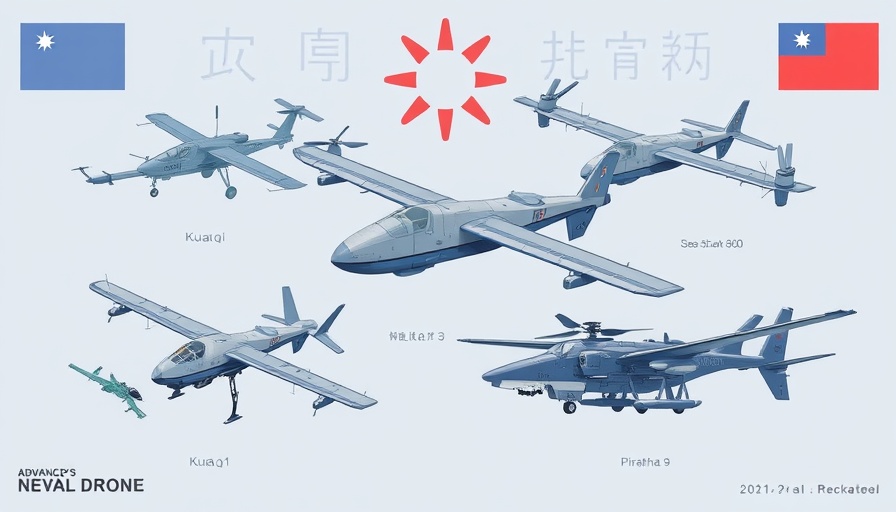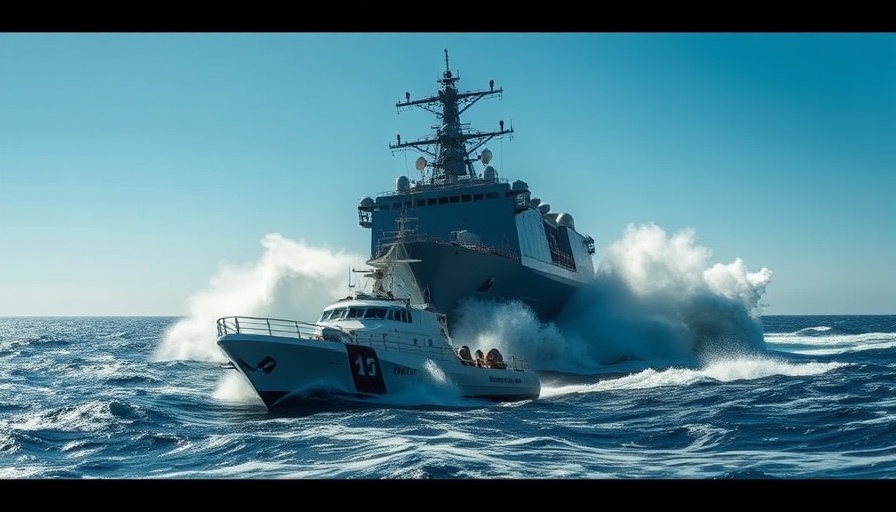
The U.S. Navy's Recent Operations in the South China Sea
The South China Sea has long been a focal point of geopolitical tension, particularly between the United States and China. In recent moves, the U.S. Navy has conducted a Freedom of Navigation Operation (FONOP) near Scarborough Shoal, showcasing its commitment to maintaining open sea lanes and enforcing international maritime laws. This area has been a point of contention, with China asserting territorial claims over it, intensifying the complexities of regional security.
Understanding FONOps and Their Importance
Freedom of Navigation Operations are essential maneuvers undertaken by the U.S. Navy to challenge excessive maritime claims and reinforce the principle that the seas should remain open to all nations. Observers believe that these operations help to deter aggressive moves by states like China, which have been seen to overextend their claims in international waters. Engaging in such operations underscores U.S. resolve while affirming international laws that advocate for free trade and navigation.
Examining the Regional Response
The FONOP at Scarborough Shoal has not gone unnoticed. Countries in the Asia-Pacific, particularly those who have territorial disputes with China, view these operations with mixed emotions. Supporters argue that they are vital for upholding balance within the region, while others fear they may provoke further military tension. For instance, the Philippines has called for dialogue and diplomacy in the wake of these maneuvers, advocating for peaceful resolutions.
The Impacts on U.S.-China Relations
The ongoing maritime operations by the U.S. can complicate U.S.-China relations. Both countries engage in diplomatic talks but often find themselves at odds due to such military displays. Some analysts predict that as the U.S. continues its naval activities in the region, China may respond with increased military visibility, which could lead to a volatile situation. The balancing act between demonstrating military power and engaging in diplomacy is delicate and fraught with risk.
Future Predictions for Maritime Operations
The frequency of FONOPs in contested waters is expected to rise as the U.S. Navy aims to assert its presence amidst growing maritime tensions. Analysts suggest that we might see a more persistent U.S. naval presence in the South China Sea as a counterbalance to China’s expanding military footprint. This evolving scenario could reshape maritime strategies among regional powers, leading to heightened vigilance and preparedness.
Concluding Remarks: Navigating Unknown Waters
As global dynamics shift, the U.S. Navy's role in the South China Sea illustrates the broader conflict between maintaining peace and asserting sovereignty. The actions taken today will not only affect current geopolitical relations but will also set the groundwork for maritime policies in the future. Understanding these developments is critical for anyone tracking international relations and maritime law.
For those interested in learning more about the dynamics of maritime operations and international law, stay tuned for further updates and analyses. Your awareness and understanding of these issues contribute to more informed conversations around global peace and stability.
 Add Row
Add Row  Add
Add 




Write A Comment